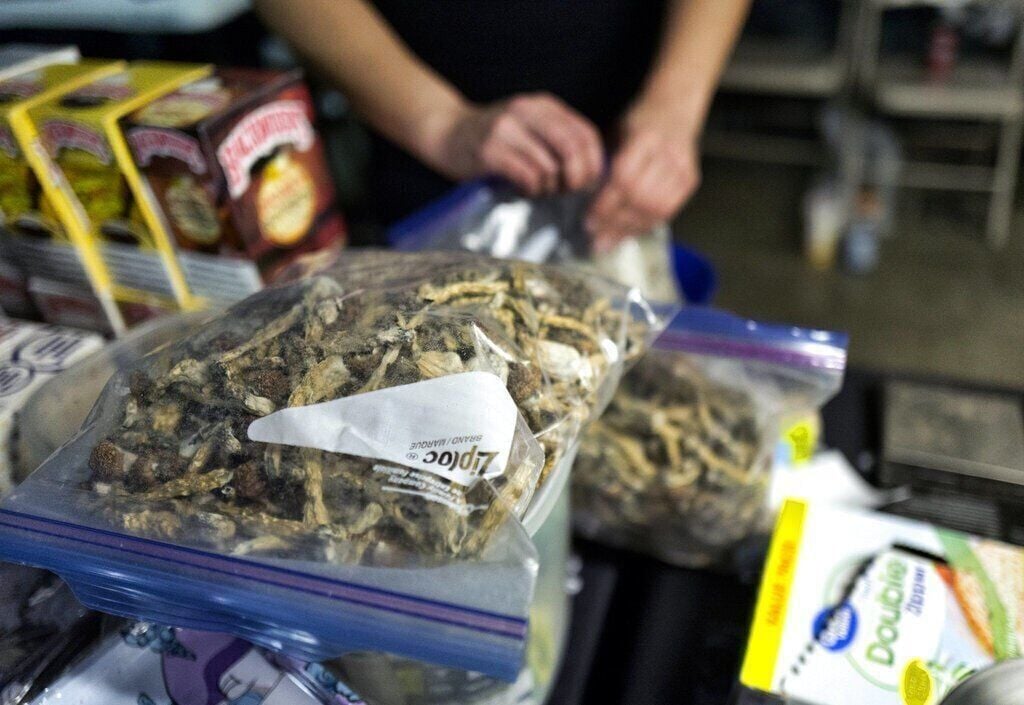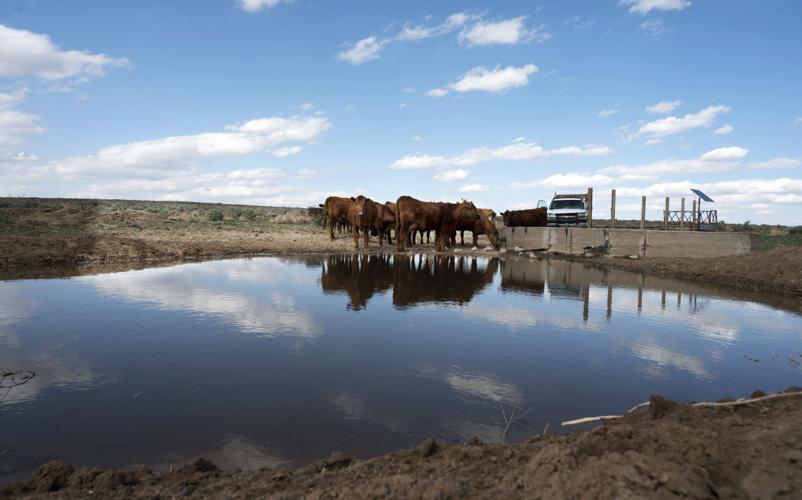Colorado lawmakers tackle bill to collect data on psilocybin program


In 2019, voters made Denver the first U.S. city to decriminalize the use of psilocybin, the psychedelic substance in certain mushrooms. Then in 2022, Colorado Proposition 122 set the groundwork for medical centers to open up statewide to administer the substances for medicinal purposes.
the Associated Press file
Colorado lawmakers are considering legislation that would charge the state health agency to collect data and information on the health effects of the state’s psilocybin program, which is set to launch this summer.
Under the bill, the Department of Public Health and Environment, the Department of Revenue, and the Department of Regulatory Agencies would be required to collect information and data on the use of psilocybin, including negative health impacts, impacts on health care facilities, law enforcement incidents, and consumer protection claims against facilitators.
Data collection efforts would be funded by gifts, grants, and donations from nonprofits and academic institutions, and all data will be stripped of any identifying information for security and privacy purposes.
Voters approved Colorado’s program in 2022 through a ballot initiative known as Proposition 122, which legalized psilocybin’s use in licensed therapeutic settings. The initiative also decriminalized the possession, growing, and selling of psilocybin for individuals 21 and older. Colorado is only the second state, after Oregon, to legalize the use of psilocybin in therapeutic settings. The recreational use of psilocybin remains illegal in Colorado.
Research has found that psilocybin can be an effective treatment for a number of mental health conditions, such as depression, anxiety, and post-traumatic stress disorder. The health agency, along with the regulatory affairs and revenue departments, has spent nearly three years mapping out the framework for the program, releasing a final draft in late 2024.
Critics of psilocybin, meanwhile, insist that the substance is linked with suicide and accidental deaths, as well as associated with psychosis. Critics have also been pushing for strict oversight, arguing it is necessary because psychedelics are being promoted and “normalized on social media in the same way that marijuana has been for the past decade.”
Since the passage of Proposition 122, lawmakers have passed legislation creating a framework for collaboration between CDPHE, DORA, and CDOR and clarifying the authority and responsibilities of each department.
The next step is laying the groundwork for data collection, said bill sponsor Sen. Matt Ball, D-Denver.
“Regardless of how you voted on Prop 122, I think we can all agree that as we roll out something somewhat novel in this state, it’s important that we collect health data so that we can evaluate what the impacts are of our natural medicine program,” he told the Senate Health and Human Services last month.
The measure also requires the state health agency to create a database for the information collected and gives the governor the authority to grant pardons to individuals who have been convicted of possession of psilocybin. According to Ball, it would apply to fewer than 20 people.
Scott Bookman, the director of public health, readiness, and response at CDPHE, the tasks outlined in the bill align with the department’s mission to collect and share public health information. The data will not only be valuable to Colorado citizens, but academic researchers, as well, he said.
“It is important to make this information available to the public. Understanding the health effects of natural medicine is crucial because these products are only legal at the state level so there’s no federal regulation and limited research to rely on,” he added.
Natasia Poinsatte of the Healing Advocacy Fund called the bill a “groundbreaking step” toward expanding access to psychedelic therapy for adults with mental health conditions.
She said data collection is necessary in order the ensure the program’s long-term success and to maintain the best experience for patients.
“These insights will help regulators and healing centers improve care, adapt to challenges, and ensure movement towards affordable access,” she said. “This kind of outcome tracking is a proven standard in health care and is critical to earning public trust. As other states look to Colorado’s leadership, a framework for participation and outcomes will be essential to inform the future of psychedelic policy.”
The bill passed on a 7-2 vote in committee, with the support of every Democrat plus Republican Sen. Scott Bright of Platteville.
Sen. Lisa Frizell, R-Castle Rock, took issue with the fact that the data collection would be entirely funded through gifts, grants and donations, potentially by public universities.
“It’s not okay to get around our budgetary issues by passing the funding off to publicly-funded institutions, whether it is an academic institution or some other organization,” she said. “I think that that’s a problem.”
It is sponsored in the House by Rep. Lisa Feret, D- Arvada.




